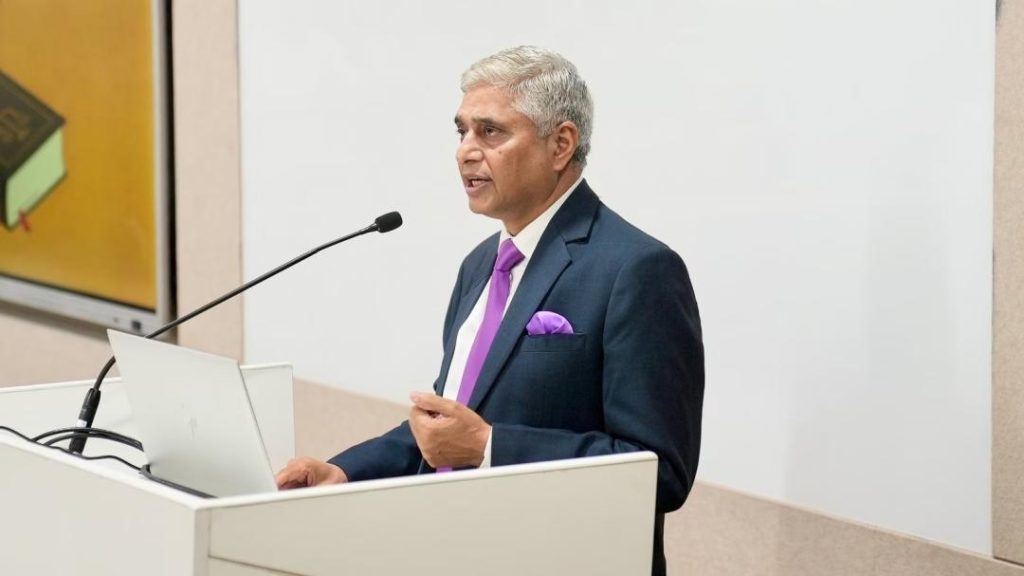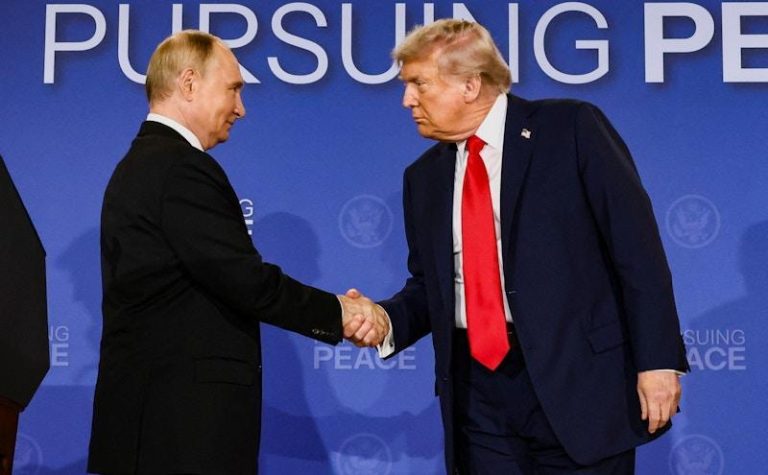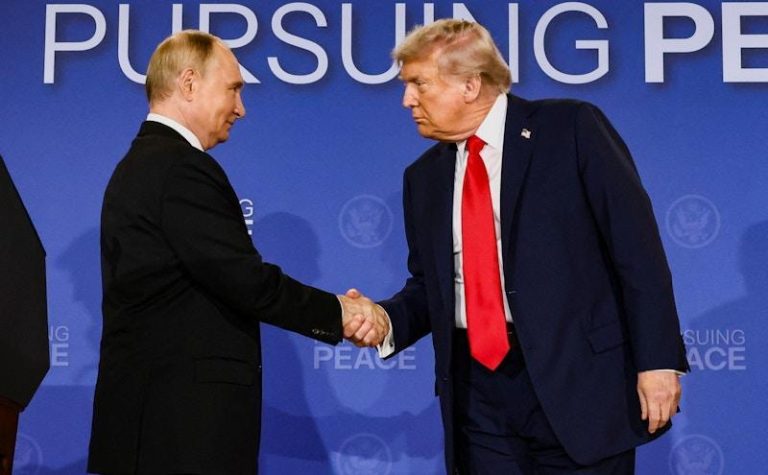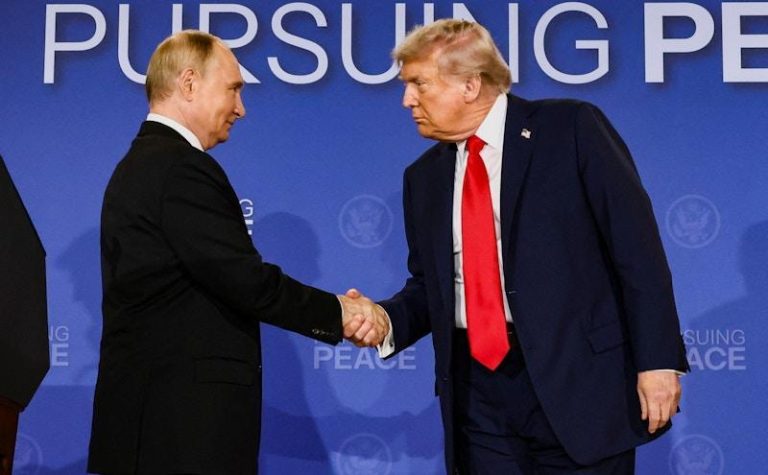
Title: If you cave in to bully, he’ll increase his demands: Ex-Indian diplomat on Trump’s tariffs
In the world of international diplomacy, it’s often said that a strong stance is the best way to get what you want. And former Indian diplomat Vikas Swarup recently echoed this sentiment, praising India’s decision to stand firm against US President Donald Trump’s demands to stop purchasing Russian crude oil.
Speaking to the media, Swarup, who served as the Indian ambassador to the United States from 2016 to 2018, said, “If you cave in to a bully, then the bully will increase his demands.” He added, “Our strategic autonomy has been the bedrock of our foreign policy right from the 1950s.”
Swarup’s comments come amid the ongoing trade tensions between India and the United States, which have seen Trump impose tariffs on a range of Indian goods, including steel and aluminum. The US President has also threatened to impose further tariffs on Indian goods, including vehicles and auto parts, if India does not agree to his demands.
India, however, has refused to back down, with the government saying that it will not compromise on its sovereignty and independence. Swarup’s views on the matter are in line with the Indian government’s stance, which is that it will not be bullied into making concessions on its trade policies.
Swarup’s assertion that caving in to a bully will only lead to increased demands is a timely reminder of the importance of standing up for one’s rights and interests in international diplomacy. In recent years, we have seen numerous examples of countries being bullied and coerced by more powerful nations, often with disastrous consequences.
Take, for example, the case of the European Union’s (EU) recent trade agreements with the United States. Despite concerns about the impact on EU industries, the EU agreed to a series of concessions on issues such as agricultural imports and intellectual property, in order to secure better access to the US market.
However, these concessions have come at a cost, with many EU industries struggling to compete with US imports. The EU has also seen a significant loss of sovereignty, with the US exerting significant influence over EU trade policies.
Similarly, the US has used its economic might to bully smaller countries into making concessions on trade and other issues. Take, for example, the case of Mexico, which was forced to agree to a range of concessions on issues such as labor rights and environmental protection in order to secure a trade agreement with the US.
Swarup’s comments are also a reminder of the importance of strategic autonomy in international diplomacy. This concept refers to a country’s ability to make its own decisions and take its own actions, without being influenced or coerced by other nations.
Strategic autonomy is particularly important for countries like India, which is a major player in the global economy and has significant interests in fields such as trade, energy, and security. By maintaining its strategic autonomy, India is able to protect its interests and promote its own development, without being beholden to other nations.
In conclusion, Swarup’s comments on Trump’s tariffs are a timely reminder of the importance of standing up to bullies and maintaining strategic autonomy in international diplomacy. As the world’s most powerful nations continue to flex their muscles and exert their influence over smaller countries, it is more important than ever for countries to stand up for themselves and defend their interests.
As Swarup said, “If you cave in to a bully, then the bully will increase his demands.” By standing firm and refusing to back down, India has shown that it is a country that is willing to defend its interests and promote its own development, without being bullied or coerced by other nations.






